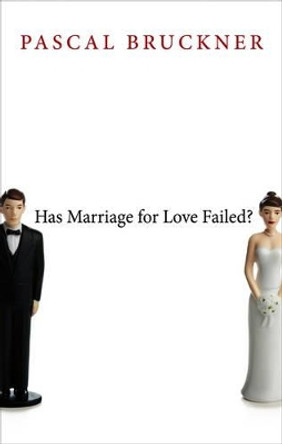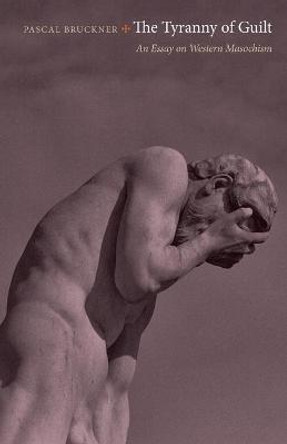Description
About the Author
Pascal Bruckner is the award-winning author of many books of fiction and nonfiction, including the novel Bitter Moon, which was made into a film by Roman Polanski. Bruckner's nonfiction books include Perpetual Euphoria (Princeton) and The Tyranny of Guilt.
Reviews
"The novelist and philosopher Pascal Bruckner's Paradox of Love is a brilliant account of the sexual muddles of our time."--Wall Street Journal "Here to help clear things up is Pascal Bruckner, a French thinker who has mercifully never fallen for the post-structuralist poppycock that convoluted prose signifies complexity of thought. The Paradox of Love is in many ways a deconstructive take on our ideas of romance and desire and obsession, yet you will seek in vain in its succession of suave pensees for a sentence that does not immediately make sense. Derrida's obfuscation and Foucault's obscurantism can have you shouting at the walls. Spend a few minutes in Bruckner's company, though, and you want to read him out loud. Which means that the reviewer's temptation is to do nothing but quote. A few pages in, I realised I'd be better off underlining what I didn't want to commit to memory, lest the book become a web of scrawls and scribbles. 'The couple is a little principality that votes its own laws and is constantly in danger of falling into despotism or anarchy.' Whoa! And after a sentence like that you get another just like it: 'Lovers are simultaneously sovereigns, diplomats, parliament, and people, all by themselves.' In a book bursting apart with ideas, it feels almost fatuous to suggest that Bruckner has a thesis--but he has, and it is that the sexual revolution was no such thing. Far from liberating us, he argues, 'the accursed parenthesis of the 1960s' did no more than usher us into new jails--jails in which we are both prisoner and guard."--Christopher Bray, Financial Times "Bruckner's book seeks to reverse the sentimental trend. His aim is to strip away the 'illusions and false expectations' connected with all matters of the heart. It has to be said--he does a pretty thorough demolition job, starting with religion... Bruckner's vision of the future is chilling, though it is already coming about. He sees a world of solitary souls who form their relationships exclusively online, through 'social networking sites'."--Daily Mail "At the start of his exhilarating new book, The Paradox of Love (Princeton University Press), Bruckner recalls that the parents mostly hung out on the second floor of the building, smoking dope and enjoying sex, while downstairs the big kids tormented the little kids... In France the bestseller status of The Paradox of Love owes much to Bruckner's suave pensees. Comparing marriage with politics, for instance, he compacts half a dozen insights into a sentence: 'The couple is a little principality that votes its own laws and is constantly in danger of falling into despotism or anarchy.' There were a few parents who did some work. They were among the first to see what was happening and the first to withdraw. They shifted their children to schools run by what they sometimes called 'the bourgeois capitalist state.' After a few angry meetings, the alternative school closed its doors. That was a major event in Bruckner's disillusionment with the ethos of his own generation. A few years later he became one of the nouveaux philosophes in Paris, a group that arose partly in reaction to the standard-issue leftist thought that dominated French discussion for many years. He's now best known as a social critic, the author of The Tears of the White Man, about the often destructive policies intended to help the Third World, and The Tyranny of Guilt, on the West's neurotic desire to blame itself for all the ills of the planet."--National Post "Bruckner confirms that there is indeed a 'paradox' about today's laissez-faire sexual mores in Europe: the freedom it offers is exactly the freedom of the market, in which there are always winners and losers... What's more, even as Bruckner embraces the ideology of romantic love--'a whole erotics, love that makes us as much as we make it'--he shows how the lifelong pursuit of passion exacts an awful toll on relationship... In the end, Bruckner's urbane but unsparing portrait of the way the French love now suggests that sophistication has as many pitfalls as naivete."--Adam Kirsch, B&N Review "Pascal Bruckner's The Paradox of Love is ... playful and wicked. It is ruminative and essayistic in style, following a tradition that harks back to Montaigne. Its purpose is less to persuade or to explain than to provoke."--Peter Beilharz, Australian
Book Information
ISBN 9780691149141
Author Pascal Bruckner
Format Hardback
Page Count 272
Imprint Princeton University Press
Publisher Princeton University Press
Weight(grams) 425g








